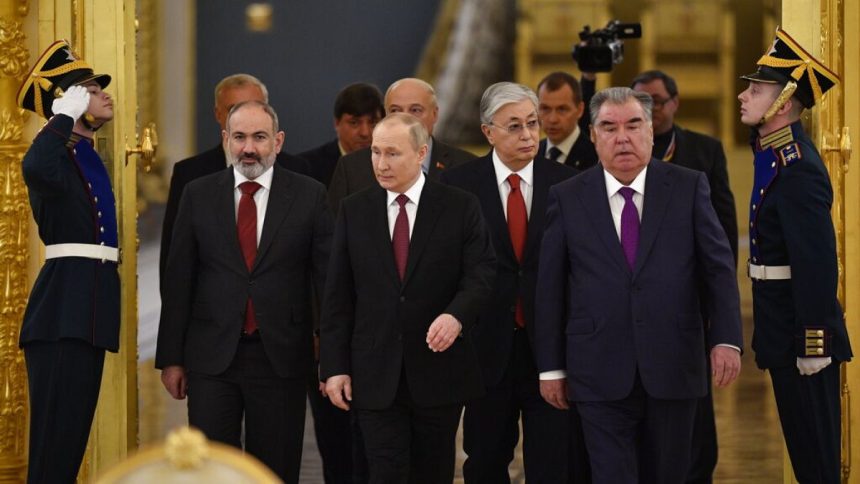Prime Minister Nikol Pashinyan told parliament that his government will decide later when to leave the Collective Security Treaty Organization (CSTO), a grouping that includes Russia, Belarus and the former Soviet Central Asian nations of Kazakhstan, Kyrgyzstan and Tajikistan.
Amid the widening rift with Russia, Armenia earlier froze its participation in the alliance, cancelled its involvement in joint military drills and snubbed CSTO summits.
On Wednesday, Pashinyan said for the first time that Armenia will leave CSTO altogether during a question-and-answer session in parliament, saying that the government will decide later when to make the final move. There was no immediate comment from Russian authorities.
Armenia’s ties with Russia, its long-time sponsor and ally, have grown increasingly strained after Azerbaijan waged a lightning military campaign in September to take the Karabakh region, ending three decades of ethnic Armenian separatist rule there.
Armenian authorities accused Russian peacekeepers who were deployed to Nagorno-Karabakh after a previous round of hostilities in 2020 of failing to stop Azerbaijan’s onslaught. Moscow, which has a military base in Armenia, rejected the accusations, arguing that its troops didn’t have a mandate to intervene.
The Kremlin, in turn, has been angered by Pashinyan’s efforts to deepen Armenia’s ties with the West and distance his country from Moscow-dominated alliances.
Russia was particularly vexed by Armenia’s decision to join the International Criminal Court, which last year indicted Putin for alleged war crimes connected to Russian actions in Ukraine.
Moscow, busy with the Ukrainian conflict that has dragged into a third year, has publicly voiced concern about Armenia’s westward shift but sought to downplay the differences.
Pashinyan’s move comes as he faces a wave of large protests demanding he step down over his government’s decision to turn over four border villages to Azerbaijan as part of an effort to negotiate a peace agreement with its long-time adversary.











